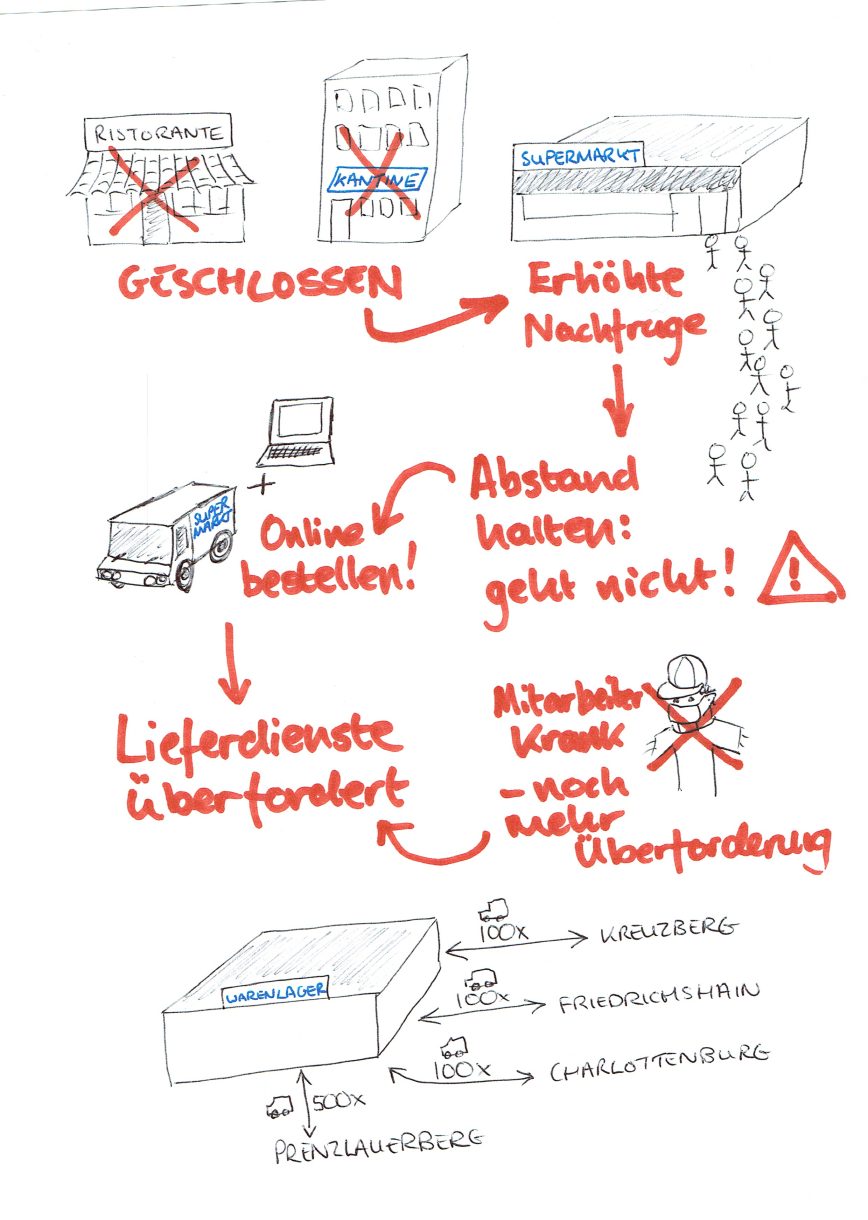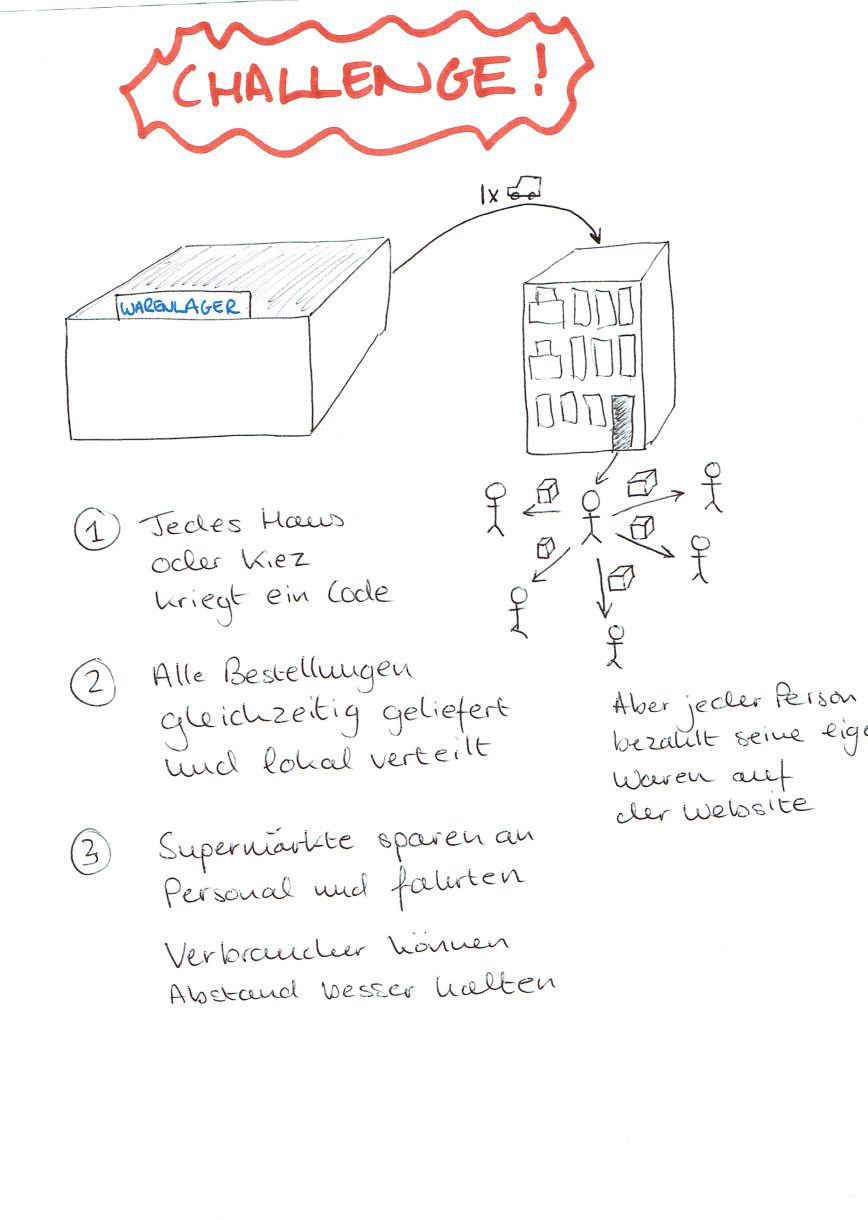Specification: coordination of delivery of groceries to a building or a neighbourhood to better manage demand

OK, next up in Jon tries to solve Coronavirus social problems… what about grocery deliveries?
My first specification was for a WordPress plugin to coordinate local food deliveries in my building and neighbourhood, which – when coming up with a Minimum Viable Product – is going to start with a series of Google Forms to test the idea. Anyway, you can read about that one here.
But what about piggy-backing delivery efforts on top of systems that already exist?
Supermarkets delivering direct to customers is less developed in Germany than some other places in Europe, but there are a few services available:
- REWE (delivery and collect-at-store service)
- Edeka / Bringmeister (delivery and in some parts of Germany collect-at-store service)
- GetNow (delivery service of the Metro Group)
- MyTime.de (independent, delivery service)
- Food.de (independent, delivery service)
The problem:
- Restaurants and work cantines close due to Coronavirus
- People work from home, and cook at home, so supermarket demand rises
- People go in greater numbers to supermarkets, rendering physical distancing hard or impossible
- People turn to online delivery services instead, but these are overloaded by the extra demand, and staff being ill or looking after children further compounds the problem
So how do you solve it?
Rather than these services doing small orders for individual households in Berlin, do bigger deliveries to all the people in one building or neighbourhood (Kiez). This is relatively easy in Berlin where most live in flats, at least in the inner city.
Each house or neighbourhood would get a code. When a customer makes an order (and pays themselves) they enter the code, and that sets the delivery time for them – that is the same time for everyone in the building, or each neighbourhood, each week. The entire neighbourhood delivery arrives at one place at one time, and volunteers (from non vulnerable groups) distribute it to the flats. To manage new demand for these services, each delivery platform could only accept new whole-neighbourhood or whole-building delivery clients from now on.
Everyone wins. A supermarket managing to do this gets more business, and reduces its staffing needs. Fewer journeys in vans are made for deliveries. Numbers of customers actually physically having to go to supermarkets is reduced, helping reduce virus spread. It’s a win all round.
So, supermarket chains, who is going to have a go at doing it?
Here’s a summary of the idea in German:

